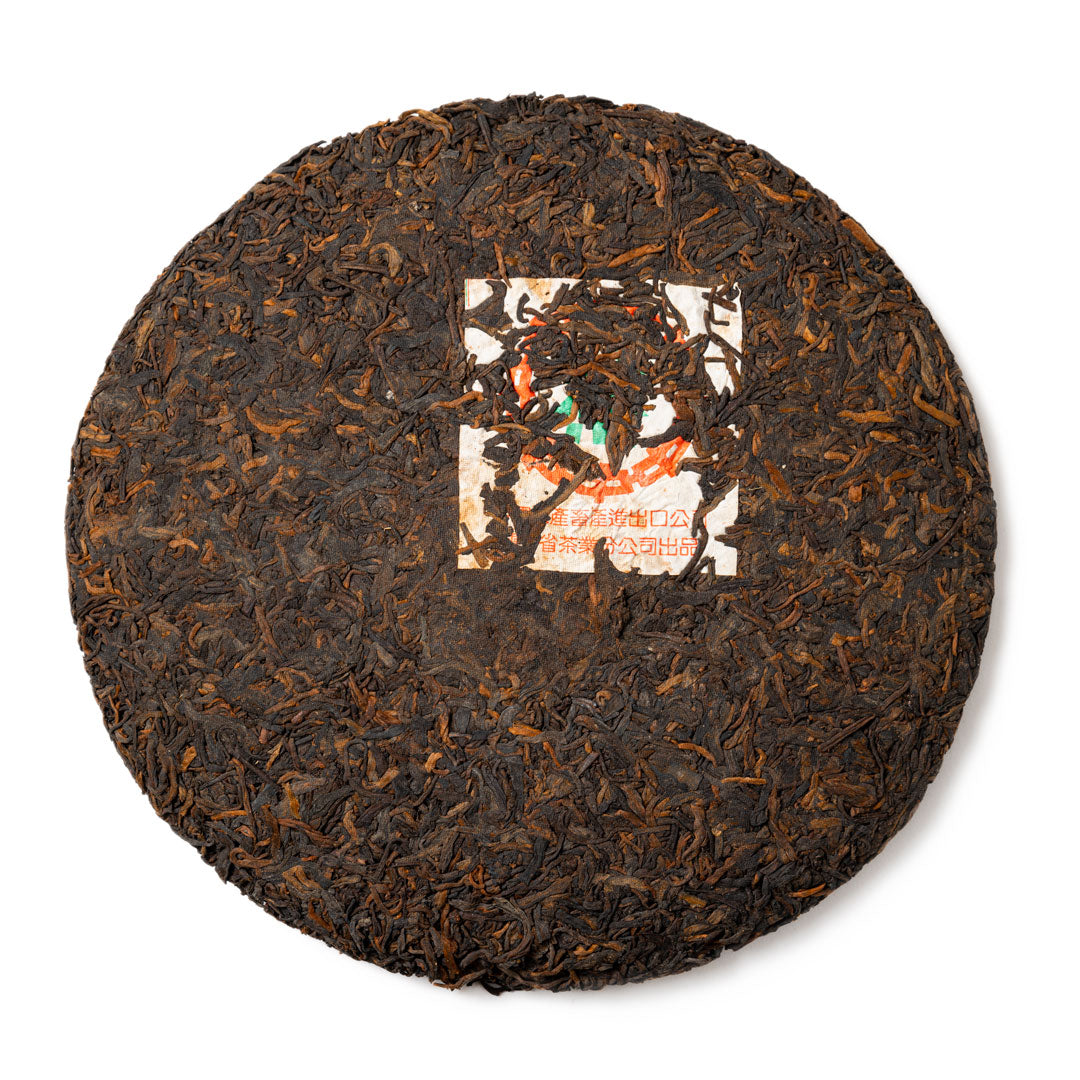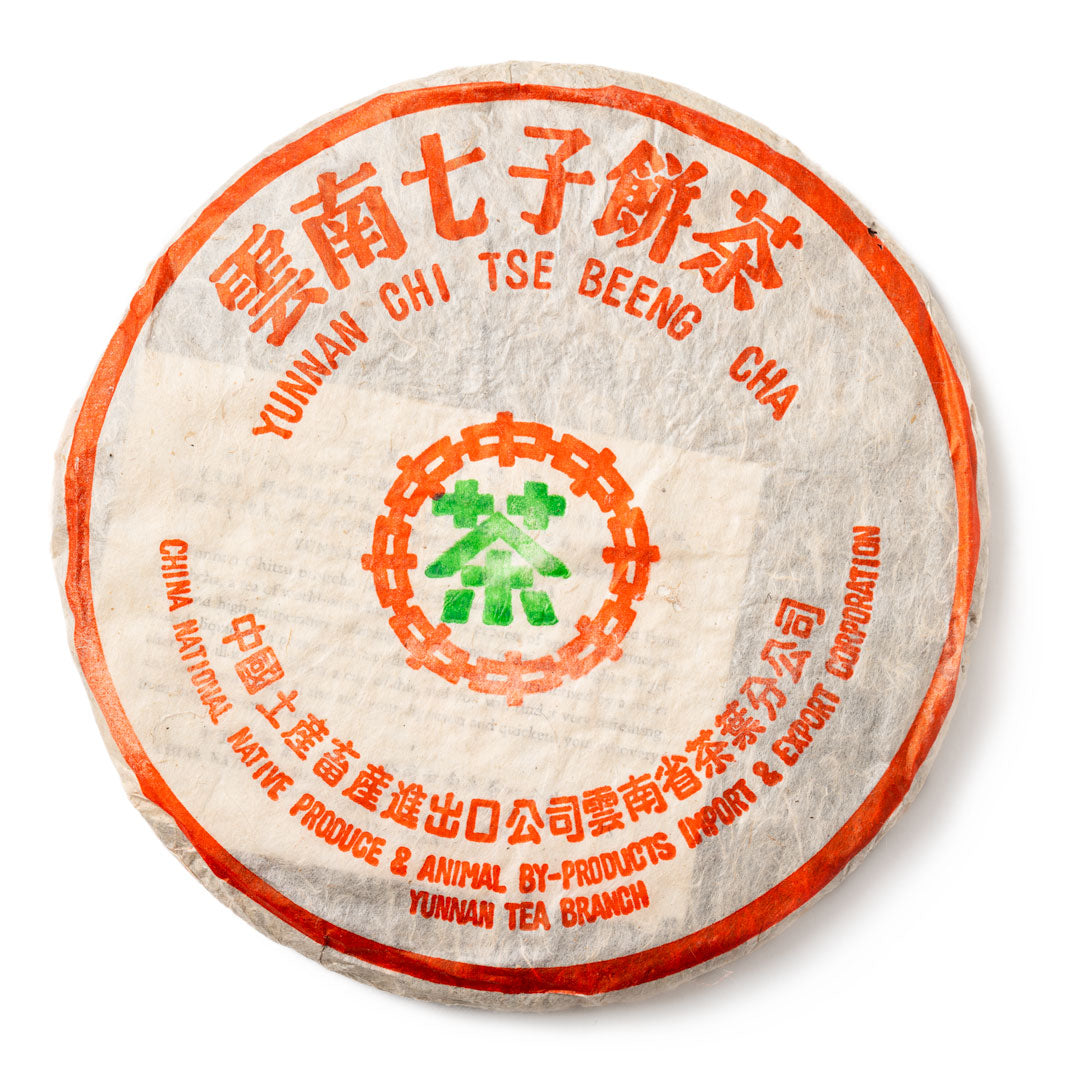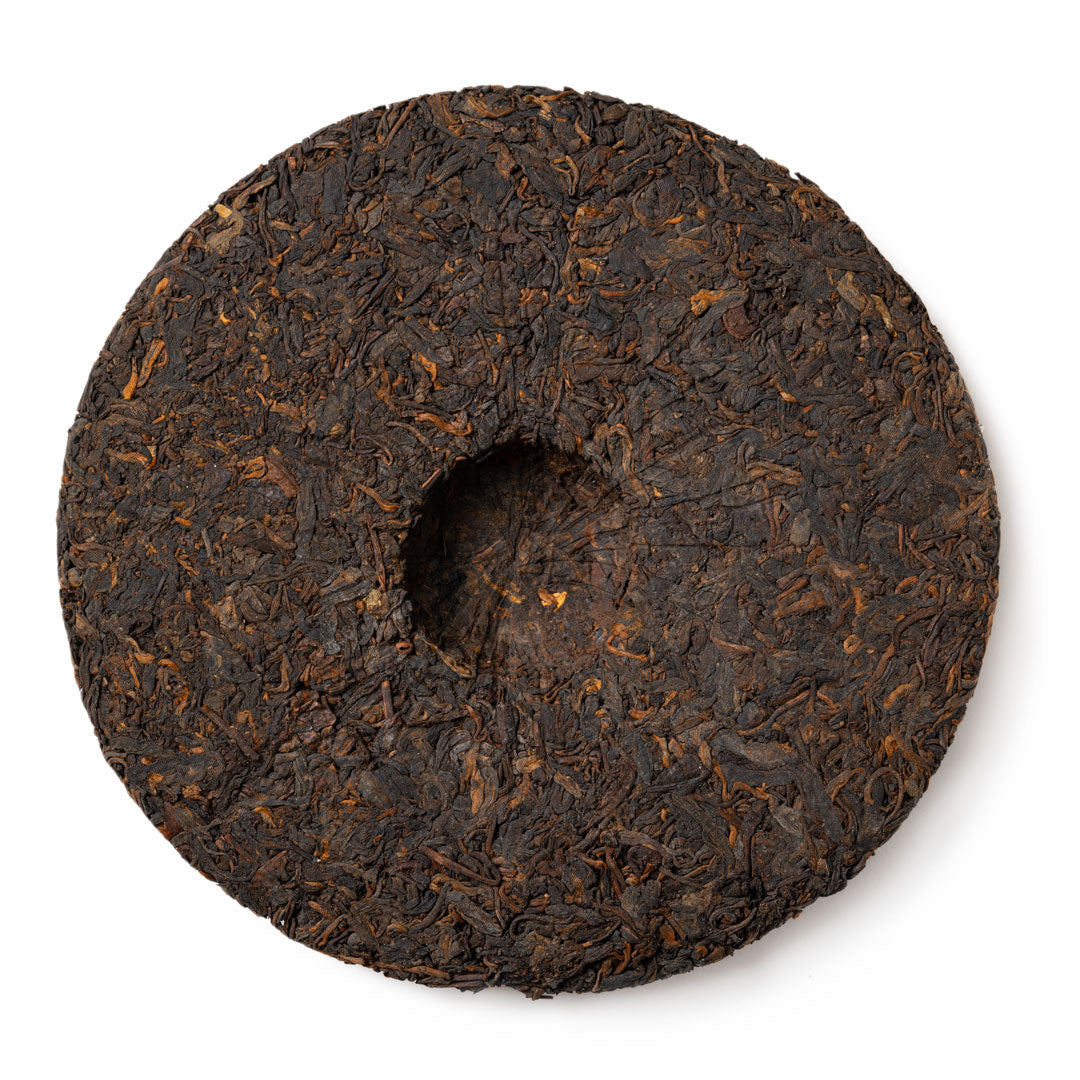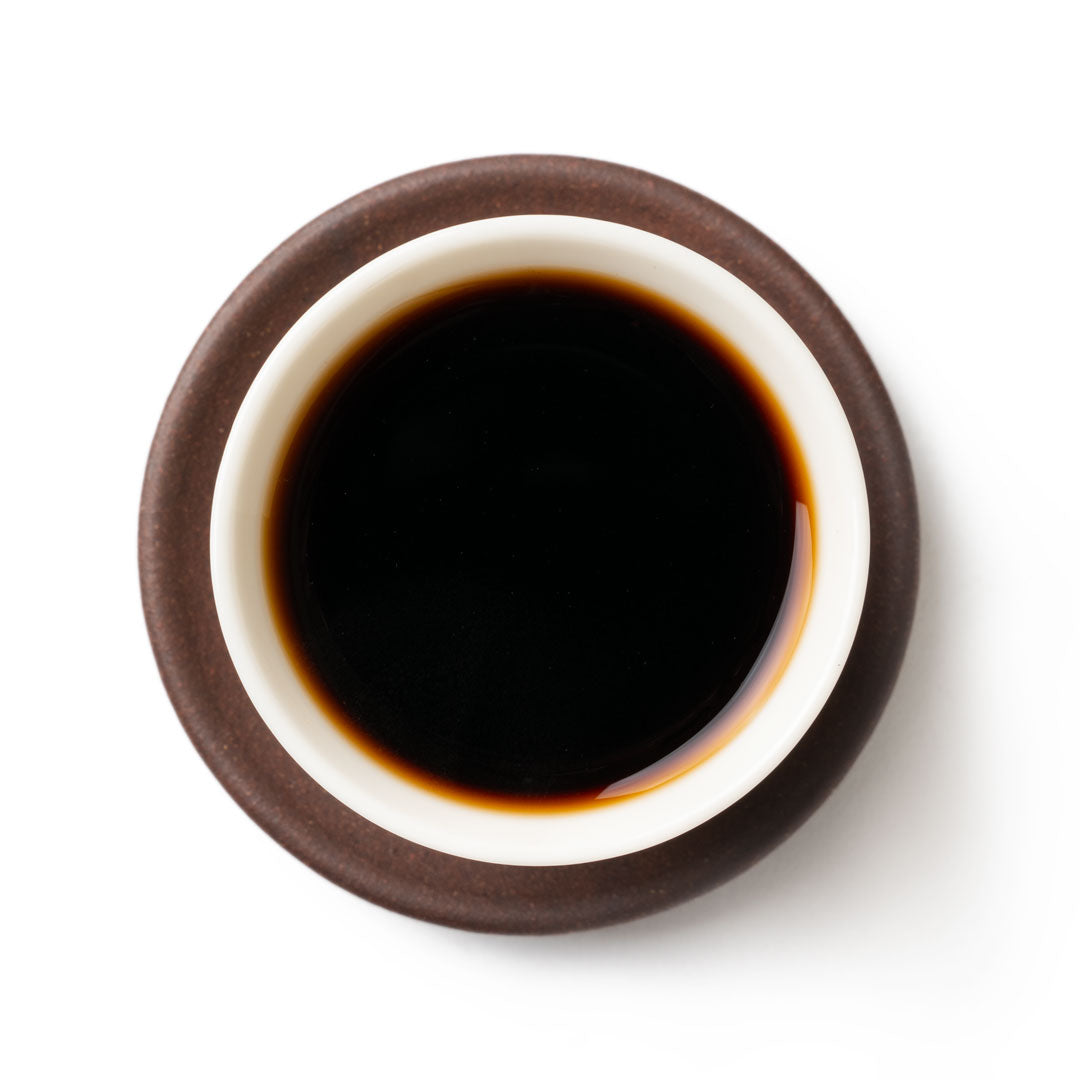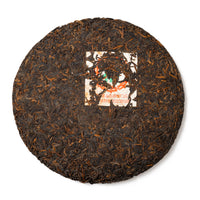
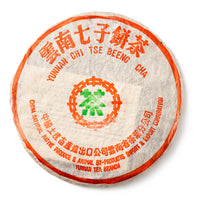
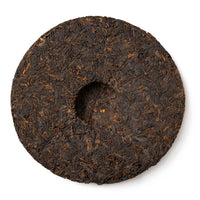
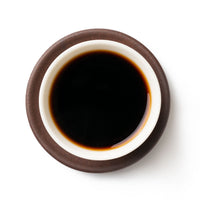
Subterrane
SOLD OUT
Subterrane is a shou puerh from 2001. This name is significant, as the tea itself is earthy and deep; it was stored in Hong Kong for some time, but also because it has a grounding, inward-moving energy that reverts to stillness, so it is also “Subterrane” in the metaphoric sense of leading us beneath the surface of our every day to where its roots are nourished from the deep silences below.
Subterrane is an 8592, which means that the blend began in 1985. These internal factory codes were important back in the day. In those days, the incoming raw material was much more stable, with similar teas from the same gardens coming each year. Of course, there were variations in the weather, yield and flavor, but overall they had much more consistency and were therefore able to create blends that could be continued each year. Eventually, these codes became famous and the market started selling the code, even though the materials used to make them had changed. This tea probably falls into the category of an homage to the old blend as opposed to such a blend as it was envisioned when it was made in 1985. The “9” refers to the “grade” of the leaves, referring to the size. This tea has lots of large, mature leaves, bordering on what are called “huang pian.” The “2” refers to Menghai Factory. Since there were so few state-run factories at the time these codes were created, a single digit was enough.
Subterrane is a bit wet in terms of storage, meaning strong humidity. Since it was aged in Hong Kong, it is worth clarifying the two types of “Hong Kong storage.” Hong Kong is relatively humid, so tea stored there will be wetter than in Taiwan or Malaysia. However, there is also what is called “traditional storage,” which is a type of intentional cellaring that has been common in Hong Kong for decades or perhaps even longer. Puerh is put in humid rooms (though called “cellars,” they may just be near the sea or be humid for a number of reasons) and then rotated out of that room to drier rooms. This is a way of controlling the speed of fermentation/oxidation that goes into aging puerh tea. It also means that each cellar will have its own unique flavors, aromas and energy. This process is similar to how Liu Bao black tea is cured in Guangxi. Subterrane is not cellared in traditional Hong Kong storage; it was just stored in Hong Kong, which has higher humidity and so may be relatively wetter than other aged puerh teas you have tried.
Subterrane is deep and bold, patient and strong. It moves not just to the ground, but beneath it. It is the kind of tea that you can spend a whole morning drinking and then get up feeling centered and stable, wondering why the day ever felt so hectic.

